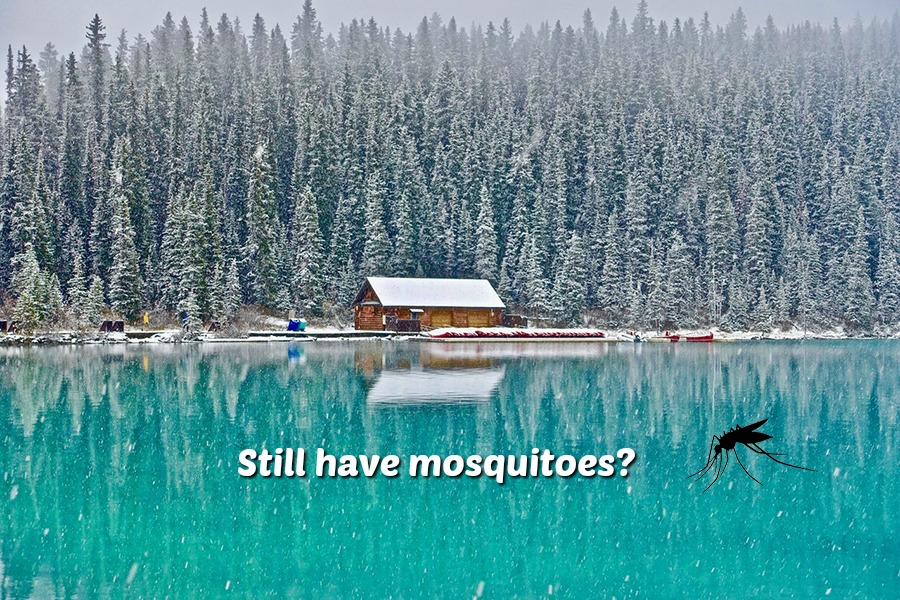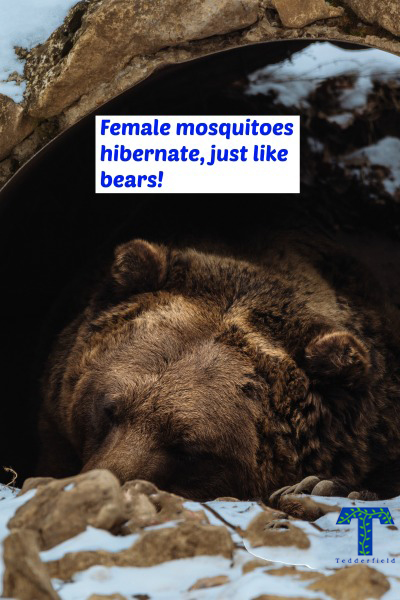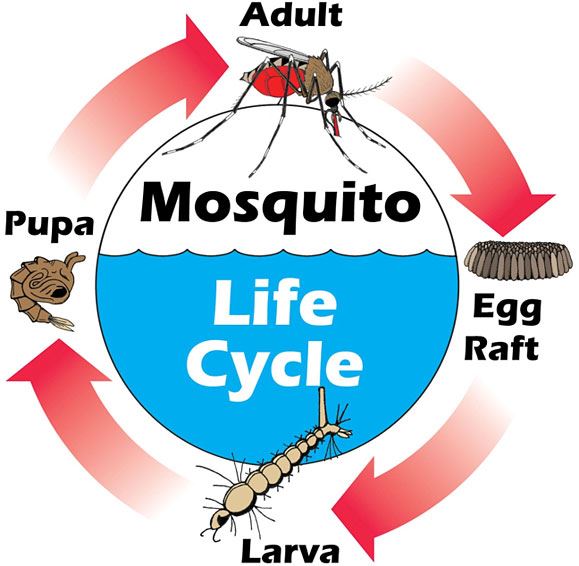
Whether or not you are a fan of winter, a big bonus in some parts of the world is that nature’s deadliest creature and winner of the super annoying pest award, the mosquito, disappears. Whether or not this happens depends on where you are located. This might make you wonder: Where do mosquitoes go in the winter?
Unlike birds, mosquitoes do not travel far, so no flying south for the winter for them. Asian Tiger mosquitoes usually stay within 300 ft of where they are hatched. Other species may travel 1-3 miles and just one mosquito, the salt marsh mosquito has a range of over 40 miles.
Mosquitoes are cold-blooded which means they need warmth to stay active. When the temperature drops below 50 degrees Fahrenheit, most male mosquitoes start to die off. Female mosquitoes and mosquito eggs are a different story.

Hibernation preserves female mosquitoes and eggs
If you live in a warm climate year round, no matter what month it is, as long as the temperature is above 50 degrees Fahrenheit, mosquitoes will be out bothering people. If you live in a place where it gets cold in the winter months, many species of female mosquitoes have the ability to hibernate. They find a nice hollow log, an animal den, or pile of leaves that is a bit warmer and they go into hibernation.
When the weather warms up above 50 degrees F, the first thing female mosquitoes look for is a blood meal from a person, mammal or bird, so they can get the protein they need to produce eggs. Then they look for a water source or moist soil in which they can lay eggs. Thus, begins the new mosquito population.
A few species of mosquitoes lay eggs that have the ability to survive even very cold temperatures. These eggs are laid in either water or in moist soil. Because the eggs have a special coating, they are able to survive the cold temperatures. When they warm up, they hatch.
With climate change, many places now have warmer winters which means more female mosquitoes and eggs survive. This leads to a bigger initial population, which means more females to lay more eggs leading to bigger and bigger mosquito populations.
What is the life cycle of a mosquito?
As stated above, a female adult mosquito must bite a person, animal or bird to get blood, which has the protein required to produce eggs. Mosquitoes are then able to lay eggs or an egg raft in water or in moist soil.
Usually within 48 hours, eggs become larvae. After molting 4 times, they become pupa. Within 5-7 days, they will emerge as adult mosquitoes, with females ready to begin the cycle again.
In addition to some species of mosquito eggs having the ability to survive winter, the larvae and pupae of some species of mosquitoes may also be able to go into diapause (hibernation) in water, and then continue their lifecycle with warmer weather.


Are there any places in the world with no mosquitoes?
Yes! There are no mosquitoes in Antarctica. The climate is just too harsh for mosquitoes to survive.
If you’re looking for a much nicer place to live or visit, Iceland, which is spectacularly beautiful, also does not have any mosquitoes. In Iceland, winter temperatures go up and down significantly. It can warm up and then suddenly get very cold.
Scientists think that because of this dramatic fluctuation in temperature, female eggs do not have enough time to hatch and then quickly find a blood source in order to lay more eggs. Even if mosquitoes enter the larvae or pupa stages, if it gets really cold again, they will likely die. So the life cycle of the mosquito is effectively interrupted leading to no mosquitoes!
Scientists have also identified the Seychelles, New Caledonia and the Central Pacific Islands (like French Polynesia) as places with no mosquitoes. With climate change and with global travels (and the ability for mosquitoes to hitch rides on airplanes), it will be interesting to see if these places remain mosquito-free.
Traveling somewhere warm this winter?
Getting ready for that awesome tropical vacation? Or heading to Africa, Asia, South America or Central America? Don’t forget to bring bug protection!
Don’t let mosquitoes or other bugs ruin what would otherwise be a lovely vacation. If you’re traveling overseas, be sure to find out about any outbreaks of mosquito borne diseases as well as any vaccines you may need. What is the best place to find this information? The Centers for Disease Control and Prevention (CDC) website.
Mosquito nets are a great thing to bring when traveling. They are lightweight, easy to pack and can be used inside and outside to keep bugs away. Learn about the best travel mosquito net.

Leave a Reply
Your email is safe with us.